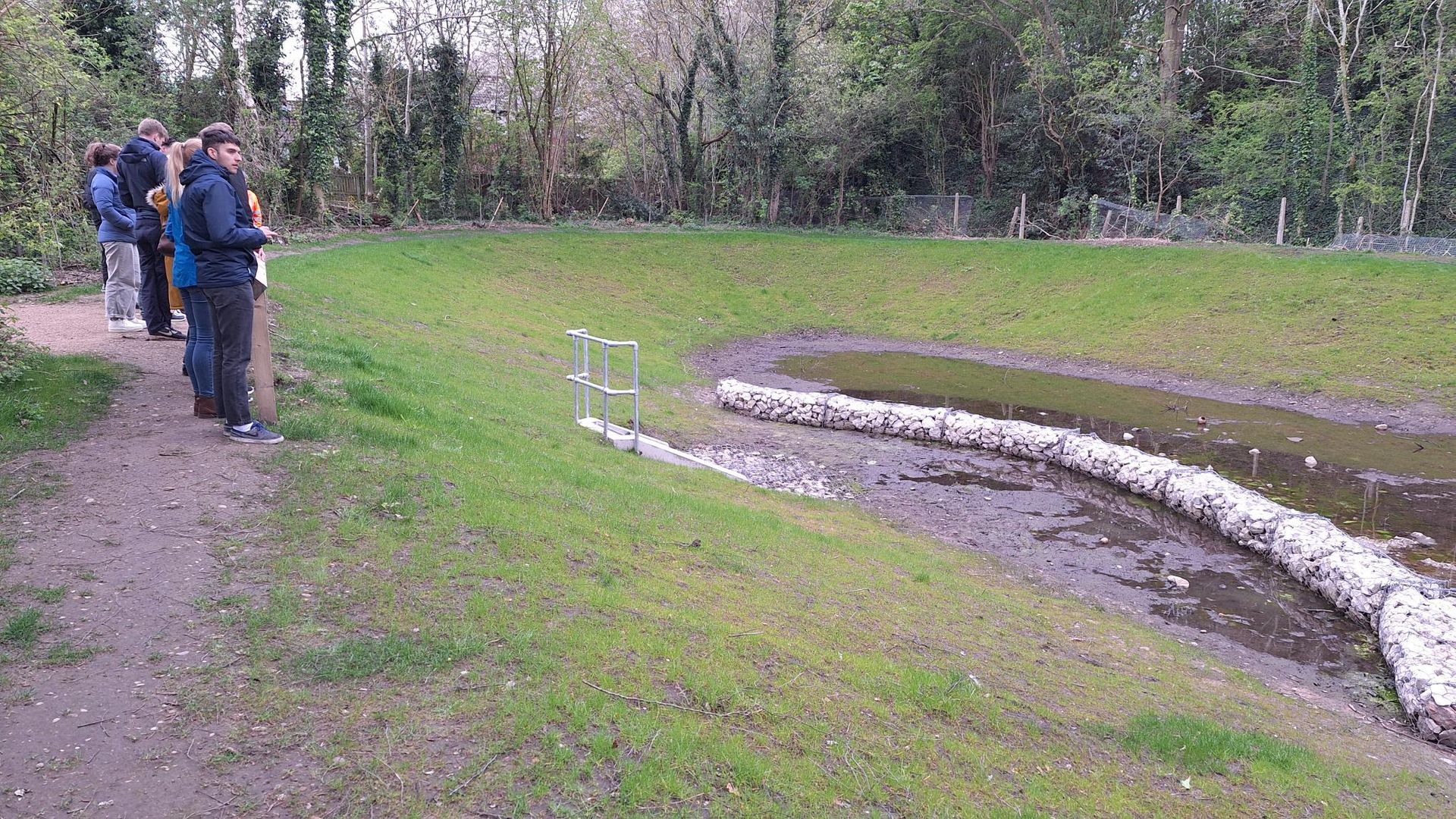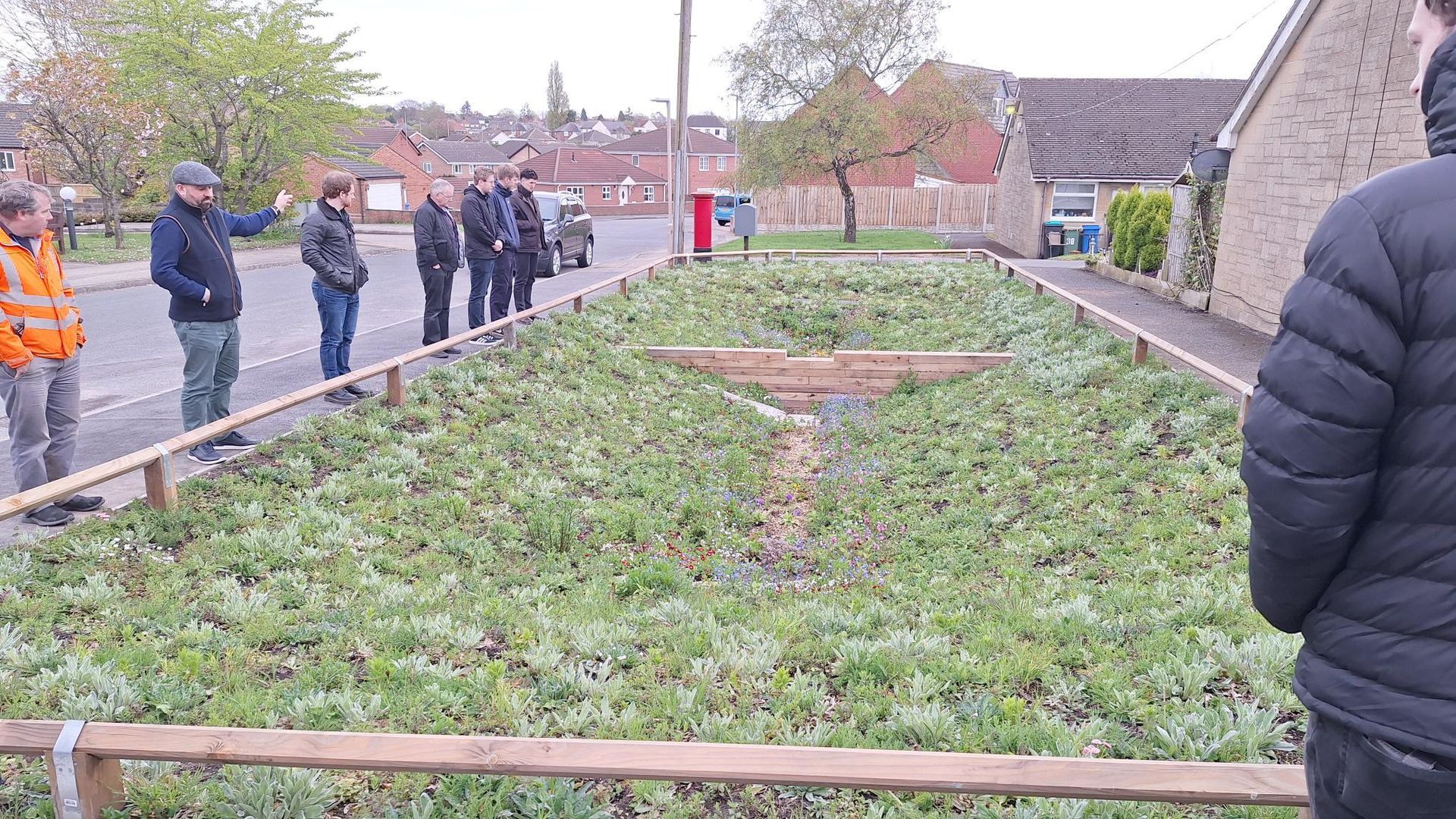Considering a Blue-Green Approach
According to the Met Office, between October 2022 – March 2024, 1,695.9mm of rainfall was recorded in England, which is the highest level over any 18-month period since the first recorded data back in 1836. As the threat of climate change continues to climb, periods of rainfall are predicted to get heavier and more frequent.
We asked Michael Underwood, our Senior Hydrologist, his opinion on blue/green infrastructure and how it can be implemented to minimise flood risk. Keep reading to learn more.
Michael, can you tell us more about the problem at hand?
CSOs (combined sewer overflows) are necessary to existing sewage infrastructure systems and prevent sewage and stormwater from flooding homes and businesses. However, due to the pressure on these traditional grey drainage systems, an increasing amount of raw sewage and other contaminants are being discharged into rivers and seas, compromising the well-being of the public and our wildlife.
What is a Grey approach?
Grey infrastructure refers to traditional, man-made drainage systems such as pipelines, gutters, drains and dams. Their principal objective is to
remove rainwater from urban areas as quickly as possible via public sewers. Even though this is beneficial in helping to reduce flood risk, this approach is no longer solely reliable as heavy rainfall continues.
How is a Blue-Green approach different?
Blue/Green infrastructure can provide sustainable, regenerative solutions for present and future challenges. With careful planning and funding, it can assist urban environments with adjusting to environmental change and improving wellbeing across local communities.
This approach includes water features such as rivers, canals and wetlands and natural land such as gardens, green open spaces, and recreational grounds. Unlike grey, the blue-green approach aims to reintroduce the natural water cycle into urban environments by attenuating water flow before it enters and overwhelms traditional grey drainage systems, providing areas where water can be stored, infiltrated, and harvested for re-use.
Several other benefits are also created, including:
- More water available for green spaces such as grassland and wetlands
- Increased number of ecological corridors and landscape permeability
- Improved biodiversity
- Improved health and well-being of communities
How is Blue-Green being implemented at a community level?
Myself and fellow Hydrologist Mairi Teasdale were recently able to see this in action whilst visiting Mansfield's Green Recovery Project, where Severn Trent are investing £76m on a range of nature-based solutions to alleviate the community's flood risk. Aiming to finish in 2025, over 20,000 drainage systems will have been retrofitted. When complete, the scheme will be able to store over 58 million litres of surface water, resulting in a reduced flood risk for 90,000 people in Mansfield.
Introducing blue-green features in urban environments can be challenging. However, the Mansfield case study demonstrates that it can be done. Once the features are installed, many benefits are provided for people and the environment, including reduced flow rates, increased water storage capacity and retention, and improved water quality. Timely and robust scoping to find areas of land that would maximise these benefits is critical to successful blue-green solutions.
Are developers starting to look more closely at adopting a Blue-Green approach?
Significant change is expected in the development market in 2024/2025 with the implementation of Schedule 3 of the Flood and Water Management Act 2010. This legislation will mandate the use of SuDS for most new developments in England exceeding 100 square meters.
SuDS, such as bioswales, basins, permeable paving, and green roofs, play a crucial role in the fundamental design of developments. While many developers are aware of the upcoming changes, effective implementation requires careful consideration and customization for each site.
Implementing SuDS will become a collaborative effort, involving engineers, landscape architects, business planners, and site managers, who will need to assess the site's topography, size, and the infiltration potential of the underlying geology to optimize the benefits.
One major benefit is the potential to achieve a net gain in biodiversity, as SuDS offer an excellent opportunity to enhance our natural environment. To meet the Environment Bill's goal of achieving a 10% net gain in biodiversity for applicable developments, projects must consider the entire ecosystem and ensure connectivity between habitats.
Start getting ready for schedule 3
Are you a consultant or developer in need of our help?
Specialists like myself and Lee Clarke, with Mairi's support, can provide you with technical advice and planning support to help you incorporate SuDS into your new or existing developments. Contact us on 01332 871 882 to discuss your options, or contact MichaelUnderwood@envireauwater.co.uk.
About Envireau Water
At Envireau Water, we are a team of expert water scientists and engineers, who provide guidance on the management and regulation of natural water systems across the UK. By working collaboratively with our clients and the regulators, we deliver robust sustainable solutions that meet the requirements of all stakeholders. With an incredibly loyal client base and our ability to work seamlessly throughout the four nations of the UK, many of our clients know us individually and trust us to find resolutions to their water problems for years to come.
Connect with us on LinkedIn to hear the latest industry developments and updates regarding our team.
Envireau Water is an RSK Group Company.














